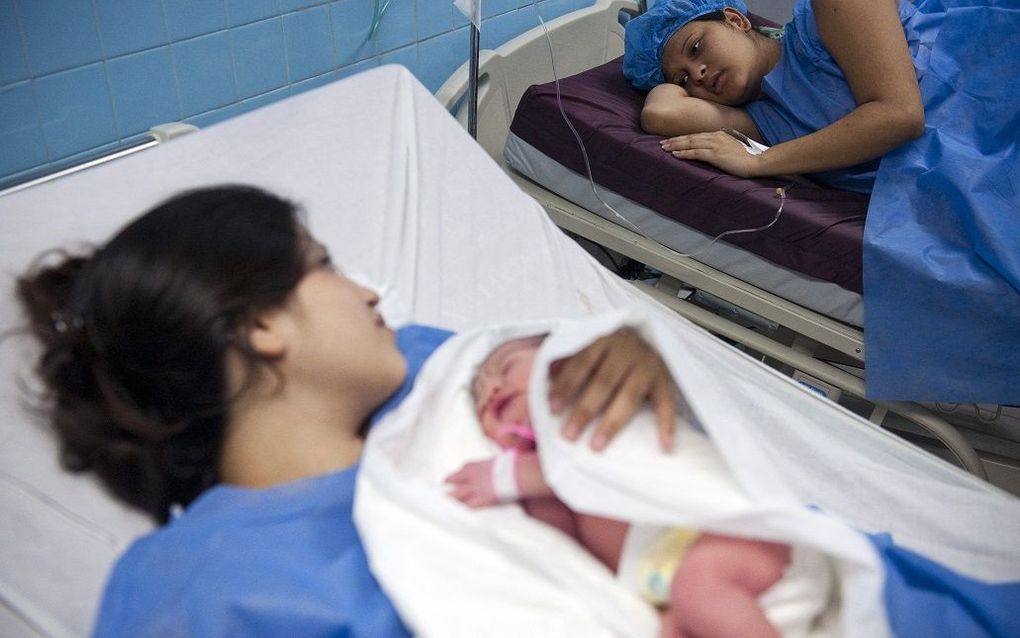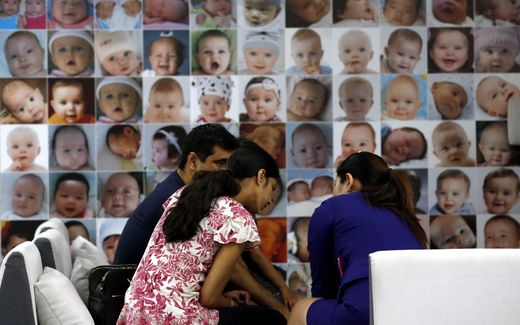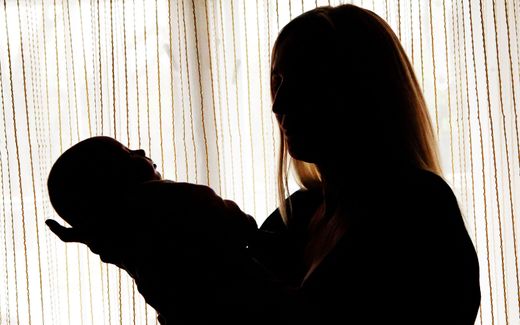Portugal: Child born through surrogacy may have three parents

The Portuguese law proposal to regulate altruistic surrogacy is in "the final stages." Photo AFP, Leo Ramirez
Southern Europe
In surrogacy, the interests of the child and the surrogate mother collide. This says the Portuguese bioethics committee. Nevertheless, the government wants to continue regulating the practice.
When intended parents get into a conflict with the surrogate mother of their child, the child should be allowed to have three parents: the surrogate mother and the intended parents. The National Council of Ethics for Life Sciences says so in an advisory report to the Portuguese government. Suppose a surrogate mother revokes the contract and thus keeps the child. In that case, biological parents may demand that their names be added to the child’s birth certificate.
The advisory report comes in response to a bill that should allow altruistic surrogacy. In this practice, a woman carries a baby without any financial interests. Although surrogacy was legalised in 2016, the Constitutional Court deemed some parts of the law unconstitutional, resulting in a stalemate which made surrogacy arrangements null and void. The Portuguese government and the bioethics committee believe that this situation needs to change.
A hot topic in this discussion is the so-called repentance period. After all, what to do if a surrogate mother regrets her decision to give away the child? According to the Constitutional Court, a surrogate mother must have the right to keep the child in such a situation. Under the current law proposal, a child must be registered no later than 20 days after birth. In case a surrogate mother has regrets, the meantime can then be used to find a solution as to who the child belongs to.
Although the ethics committee does not like the idea of such custody battles, it does endorse that standard. It quotes the Convention on the Rights of the Child, which states that a child should be registered immediately after birth and has the right to a name, nationality and parents. However, the health council argues, “in a special case like surrogacy, we must reconcile this right with the interests and fundamental rights of the pregnant woman.” According to the council, the latter should have the right to withdraw consent for carrying the baby.
To avoid “regrets” and disputes over custody, the committee recommends offering psychological support to the surrogate mother at all times. In addition, the committee argues that a surrogate mother has ideally given birth to a child of her own before. According to the ethicists, an aspiring surrogate mother should get a recommendation from the Association of Physicians and the Association of Psychologists.
Exhaustion
That Portugal’s health ministry requested an opinion can be called remarkable. Plans to regulate surrogacy have been in play for years, but the government is in little hurry. The law was approved in 2021 and was supposed to come into force in 2022. However, that did not happen, as the government missed several deadlines to the anger of pro-surrogacy organisations.

According to the Portuguese Fertility Association, many intended parents have lost patience and seek refuge abroad. Cláudia Vieira, president of APFertility, says to the Portuguese daily Jornal de Notícias that the government is pushing citizens into situations of “emotional and psychological exhaustion”, leaving them to try to become parents only in the private sector or in other countries.
Exceptional
Until Russia invaded, Ukraine was the primary destination for Portuguese couples. Shortly after the invasion, Jornal de Notícias reported that 100 Portuguese couples had already paid for a Ukrainian surrogate mother and didn’t know what would happen to the children after birth. In response, the Portuguese Ministry of Foreign Affairs created an “exceptional solution” that allowed Ukrainian women to travel to Portugal and have their babies born there. According to Jornal de Notícias, at least 22 children gained Portuguese nationality via this way.
Although the bill has not been made public, according to the health ministry, the proposal is in “the final stage.” The bill will now be finalised and forwarded to the Council of Ministers.
Related Articles







